Charghat, Rajshahi, Apr 16 (V7N)– Defying conventional agricultural practices in the region, a determined couple in Charghat upazila of Rajshahi has achieved remarkable success in cultivating currants, a fruit with high demand in Bangladesh but primarily imported from neighboring India. Shibli Sadiq, a businessman, and his wife Tabassum Tasnim, a homemaker, have turned their passion into a thriving agricultural venture, inspiring hundreds in their community.
"Although the country's billion-tk market for this fruit is controlled entirely by neighboring India... recently there has been a potential for currant cultivation in the Charghat area of Rajshahi. Agricultural entrepreneur couple Shibli Sadiq and Tabassum Tasnim have cultivated currants on flat land in Holidagachhi village of Charghat upazila. Due to the success of their currant cultivation, people come from various places including neighboring upazilas to see and buy currant seedlings every day," reported Md. Ramadan Ali, Rajshahi Bureau.
Their journey began in 2018 when Shibli brought a single currant sapling from a trip to India. The couple planted it in their yard, and after two years of growth, they propagated 15 cuttings. These 15 trees further multiplied, yielding 300 grafts which were planted on two bighas of land just 15 months ago. Remarkably, within six months, 160 of these trees began to bear fruit. Over the past nine months, they have harvested an average of four kilograms of currants per tree, selling them successfully in the market.
"It is known that Shibli brought a tree sapling with him while traveling to India in 2018. The husband and wife planted the sapling in the yard of their house. When the tree grew, two years later, they made 15 cuttings from it. They planted those 15 trees next to their house. After two years, they gradually made 300 grafts from 15 trees. They planted those trees on two bighas of land 15 months ago. Six months later, 160 trees started bearing fruit. After the fruits started bearing fruit, they have collected an average of four kilograms of currants from each tree in the last nine months and sold them in the market," Ali detailed.
In an innovative approach to maximize their yield, the couple also utilizes the pruned branches to create and sell saplings for Tk 350 each. This venture has earned them approximately Tk 300,000 in the last nine months alone.
"In addition, instead of pruning the excess parts of the tree, they are making pens from them and selling them at a price of 350 taka each. The couple has earned about 3 lakh taka in the last nine months by selling the pens of the Bedana and Bedana," the report stated.
Shibli Sadik, a diploma holder in electronics, shared his entrepreneurial journey, stating that after struggling to find work, he started a small business. Inspired by the initial success with the imported currant seedlings and encouraged by his wife, he decided to expand into commercial cultivation. Investing around Tk 50,000, he planted 300 seedlings on two bighas of land. He now sells the currants for Tk 350-450 per kilogram and anticipates a significantly larger harvest in the next season, projecting earnings of at least one million taka.
"Young entrepreneur Shibli Sadik said, 'After completing my diploma in electronics at the Polytechnic Institute, I couldn't find work. I started a small business. I brought currant seedlings from India and got good results from 15 trees. On the advice of my wife, I thought of expanding the garden... This year, I will get four kg of fruit per tree, but next season, it will exceed ten kg. I hope to sell currants worth at least one million taka,'" Shibli explained.
Tabassum Tasnim plays an active role in managing their currant garden, which is secured under CCTV surveillance. Having assisted her father in agricultural work from a young age, she dedicates her time after household chores to the orchard, overseeing the care provided by workers. She highlighted the need for weekly fungicide application but noted the relatively low incidence of diseases. The positive feedback from visitors who travel from afar to see and appreciate their currant cultivation is a source of immense satisfaction for the couple. They are now planning to expand their currant orchards to five more bighas of land.
"Tabassum Tasnim said, 'Our currant garden is next to our house. The entire garden is under CCTV camera surveillance... People come from far and wide and praise our Bedana. Then it seems that our hard work has been fruitful with the efforts of both of us. We will plant Bedana orchards on five more bighas of land, the work of preparing the land is underway,'" Tabassum shared.
Local resident and teacher Jahangir Hossain expressed his surprise and delight at the successful currant cultivation in their region, noting the delicious taste of the fruit and the pride the community feels in Shibli and Tabassum's achievement, which attracts visitors from various areas.
"Local resident and teacher Jahangir Hossain said, 'It is surprising that currants are being cultivated in our country... People from different areas are coming to see the currant garden of Shibli and Tasnim, which is also a matter of pride for our village,'" Hossain commented.
Charghat Upazila Agriculture Officer Al Mamun Hasan lauded Shibli and Tabassum's initiative and dedication, stating that the agriculture department provides them with regular monitoring and advice. He highlighted the perennial nature of their currant variety, allowing for year-round sales. Their success has also sparked interest among other local agricultural entrepreneurs in cultivating exotic fruits.
"Charghat Upazila Agriculture Officer Al Mamun Hasan said, 'Shibli and Tasnim have established the currant garden on their own initiative and with their dedicated efforts... Seeing their success, other agricultural entrepreneurs in the area are also interested in cultivating exotic fruits,'" Officer Hasan affirmed.
Shibli and Tabassum's success story exemplifies the potential for agricultural innovation and entrepreneurship in Bangladesh, paving the way for local production of high-demand fruits and inspiring others to explore new agricultural ventures.
END/RAR/RH/



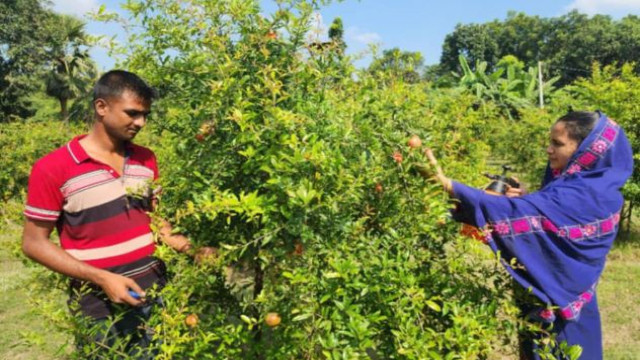
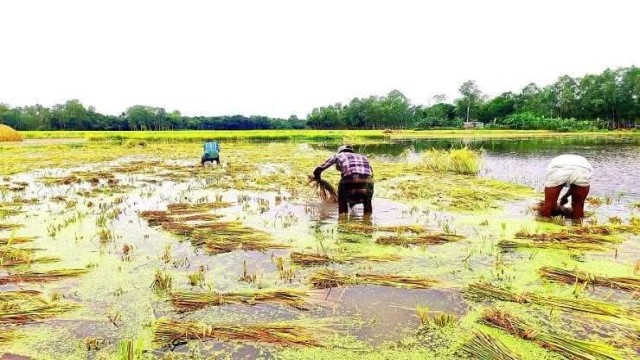
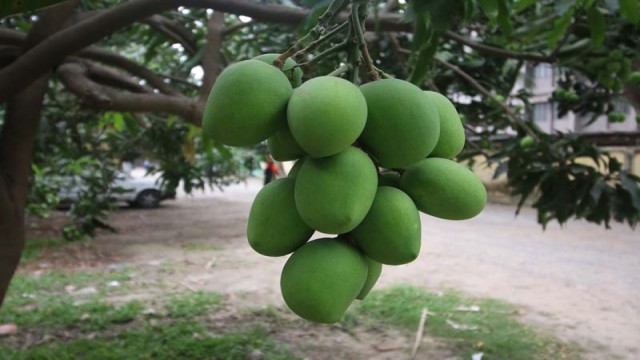
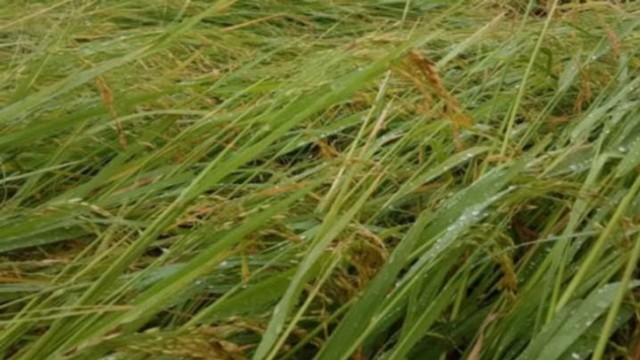
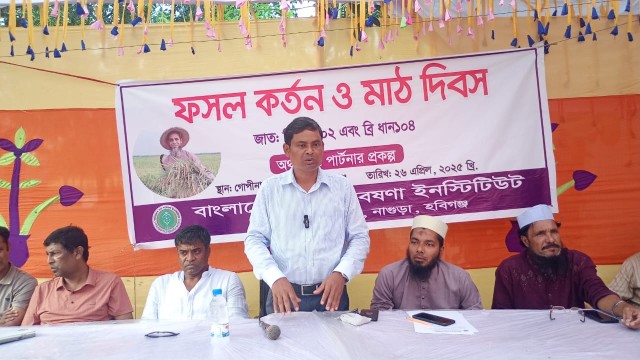
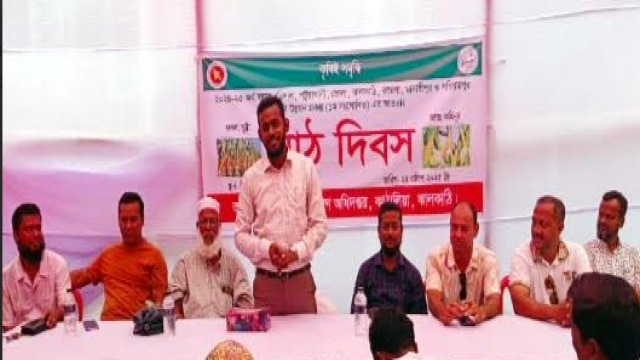





















Comment: